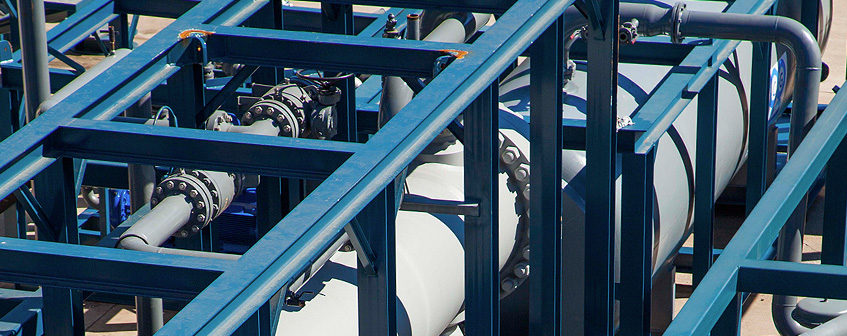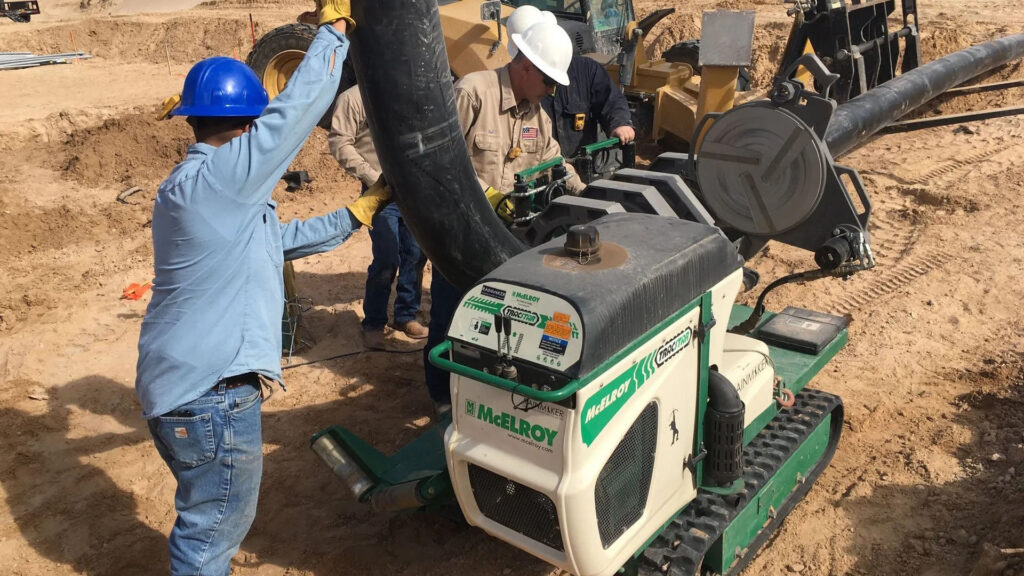Superior Rentals Contact: best ways to connect
A Comprehensive Overview to the Numerous Types of Oil Field Equipment and Pipeline Equipment Available
The oil and gas industry counts greatly on customized equipment for effective removal and transportation. Numerous kinds of machinery, from drilling rigs to storage containers, play vital roles in this complicated process. Each piece of equipment serves distinct functions that add to general operational success. Understanding these components is essential for anybody associated with the market. As the sector evolves, so also do the technologies that support it. What advancements are on the perspective?

Drilling Rigs: The Foundation of Oil Expedition
Drilling rigs serve as the essential machinery in the domain name of oil expedition, allowing business to accessibility hydrocarbon reserves hidden deep below the Earth's surface area. These rigs are available in numerous kinds, consisting of land rigs, offshore rigs, and mobile devices, each designed to operate in details settings. Outfitted with innovative modern technology, piercing rigs can pass through geological formations with accuracy, making certain reliable resource removal. The architectural honesty and functional capacities of these rigs are essential, as they should withstand severe conditions and considerable stress. Furthermore, the selection of an exploration rig influences the overall job expense and timeline, making it an essential consideration for oil business seeking to enhance their expedition efforts and take full advantage of productivity in their operations.
Pumps: Vital for Liquid Motion
In the oil extraction procedure, the role of pumps is significant, assisting in the motion of liquids throughout various stages of manufacturing. Pumps are vital for carrying crude oil, water, and other fluids from underground tanks to the surface and after that through pipelines to refineries. They are available in different types, consisting of centrifugal, positive displacement, and completely submersible pumps, each offering specific objectives based on the liquid features and functional requirements. Centrifugal pumps are frequently used for their performance in high-flow applications, while favorable variation pumps master managing thick liquids. The selection of pump effects total effectiveness, operational security, and upkeep expenses. Correct choice and upkeep of pumps are essential for enhancing production and lessening downtime in oil area procedures.
Valves: Managing Circulation and Pressure

Valves play a crucial role in handling the circulation and stress of liquids within oil areas and pipelines. Numerous sorts of valves offer unique applications, each made to meet specific features essential for effective procedure - Superior Rentals fusion machines. Understanding the characteristics and usages of these valves is important for maximizing system efficiency and safety and security
Types of Valves
Essential elements in oil field operations, valves play a crucial function in managing the flow and stress of liquids within pipelines and tools. Numerous sorts of shutoffs are used to fulfill the varied needs of oil and gas production. Usual kinds consist of entrance valves, which give a straight-line flow and very little pressure drop; world valves, understood for their throttling capabilities; and sphere shutoffs, acknowledged for their quick on/off control. Additionally, check shutoffs prevent backflow, while butterfly shutoffs offer a light-weight service for regulating circulation. Each valve type is developed with specific materials and setups to hold up against the harsh problems typically found in oil areas, guaranteeing dependability and performance in procedures. Comprehending these kinds is vital for efficient system monitoring.
Valve Applications and Features
While different kinds of valves offer distinctive objectives, their main applications revolve around managing flow and pressure within oil and gas systems. Valves such as entrance, world, and round shutoffs regulate fluid movement, guaranteeing peak efficiency and safety. Gateway valves are typically used for on/off control, giving very little flow resistance. Globe valves, on the various other hand, deal specific circulation guideline, making them ideal for strangling applications. Sphere shutoffs are preferred for their fast procedure and limited sealing abilities. Furthermore, stress alleviation shutoffs are essential for preventing system overpressure, safeguarding tools honesty. Overall, the appropriate selection and application of valves enhance functional effectiveness, making sure the reliable transport of oil and gas via pipelines and processing facilities.
Compressors: Enhancing Gas Transportation
Compressors play an essential duty in the efficient transport of gas, making certain that it moves efficiently with pipes over lengthy ranges. These devices increase the pressure of gas, allowing it to get over rubbing and altitude modifications within the pipeline system. Furthermore, compressors promote the balancing of supply and demand, accommodating fluctuations in intake and manufacturing prices. Numerous types of compressors are employed in the market, including centrifugal, reciprocating, and rotary screw compressors, each offering distinct advantages based upon the functional needs. Regular maintenance of these compressors is vital to take full advantage of effectiveness and reduce downtime, inevitably adding to a trustworthy gas transport network. Their crucial function highlights the significance of compressors in the overall oil and gas facilities.
Storage Tanks: Safe and Efficient Fluid Management
Efficient transportation of gas counts on numerous supporting systems, one of which Check This Out is the proper administration of storage space containers. These storage tanks play an essential role in safely consisting of liquids, ensuring that operational performance is kept while minimizing ecological threats. Built from long lasting products, they are developed to hold up against high stress and destructive aspects. Appropriately sized and tactically situated, storage tanks facilitate the smooth circulation of all-natural gas and various other fluids, preventing bottlenecks in supply chains. Routine maintenance and surveillance are necessary to spot leaks or structural problems, advertising safety and compliance with regulative requirements. Inevitably, the reliable administration of tank is crucial for the overall stability and integrity of the oil and gas industry's fluid handling systems.
Pipeline Solutions: Facilities for Transport
Pipeline systems function as the backbone of the oil and gas market, helping with the reliable transport of hydrocarbons over vast distances. These systems are composed of different parts, consisting of pipes, shutoffs, pumps, and compressors, all carefully designed to ensure smooth flow. The materials made use of in pipeline building and construction, typically steel or high-density polyethylene, are picked for longevity and resistance to rust. Pipeline networks can extend throughout land and water, linking manufacturing sites to refineries and circulation centers. In addition, advanced innovation allows real-time surveillance of flow rates and pressure degrees, improving operational effectiveness. The critical placement of these pipes decreases ecological impact while making the most of resource accessibility, therefore playing a crucial role in meeting energy needs internationally.
Security Equipment: Making Sure Worker and Environmental Management
The operation of pipeline systems, while necessary for power transport, likewise offers significant safety challenges for workers and the atmosphere. Safety and security tools plays a considerable duty in mitigating these risks. Individual safety tools (PPE) such as headgears, handwear covers, and non-slip shoes safeguards workers from physical hazards. In addition, gas detection systems keep track of for leaks, guaranteeing that damaging substances do not present a risk to personnel or the bordering environment. Emergency situation shutdown systems are critical for rapidly stopping procedures during a dilemma, preventing potential this post disasters. Spill control products, consisting of absorbents and obstacles, are basic for reducing ecological impact. Generally, buying all-encompassing safety tools is essential for keeping functional honesty and safeguarding both employees and the environment in the oil and gas industry.

Frequently Asked Inquiries
Exactly how Do I Pick the Right Oil Field Equipment for My Job?
Selecting the ideal oil area devices includes evaluating task specs, spending plan restraints, and operational needs. Take into consideration variables such as tools dependability, compatibility with existing systems, and the supplier's online reputation to ensure peak performance and safety.
What Are the Upkeep Needs for Oil Field Equipment?
Maintenance needs for oil area devices include routine evaluations, lubrication, and timely repair services. Operators needs to additionally stick to manufacturer guidelines, screen performance metrics, and guarantee conformity with safety and security regulations to enhance longevity and performance.

Exactly How Can I Guarantee Conformity With Environmental Regulations?
To guarantee compliance with environmental laws, firms have to perform regular audits, apply finest methods, purchase training, keep proper paperwork, and stay upgraded on legislation (Superior Rentals reviews). Partnership with ecological agencies can likewise boost adherence to regulations
What Is the Ordinary Lifespan of Pipeline Equipment?
The ordinary lifespan of pipeline devices normally varies from 20 to 50 years, depending on factors such as worldly high quality, environmental problems, and upkeep practices. Regular evaluations can substantially influence longevity and functional effectiveness.
Exactly how Do I Safely Transport Oil Field Equipment to Remote Locations?
Transporting oil field devices to remote places needs cautious planning, consisting of course assessment, safeguarding permits, utilizing suitable vehicles, and making sure security protocols are followed. Proper training and interaction among staffs click for info are necessary for effective transport.